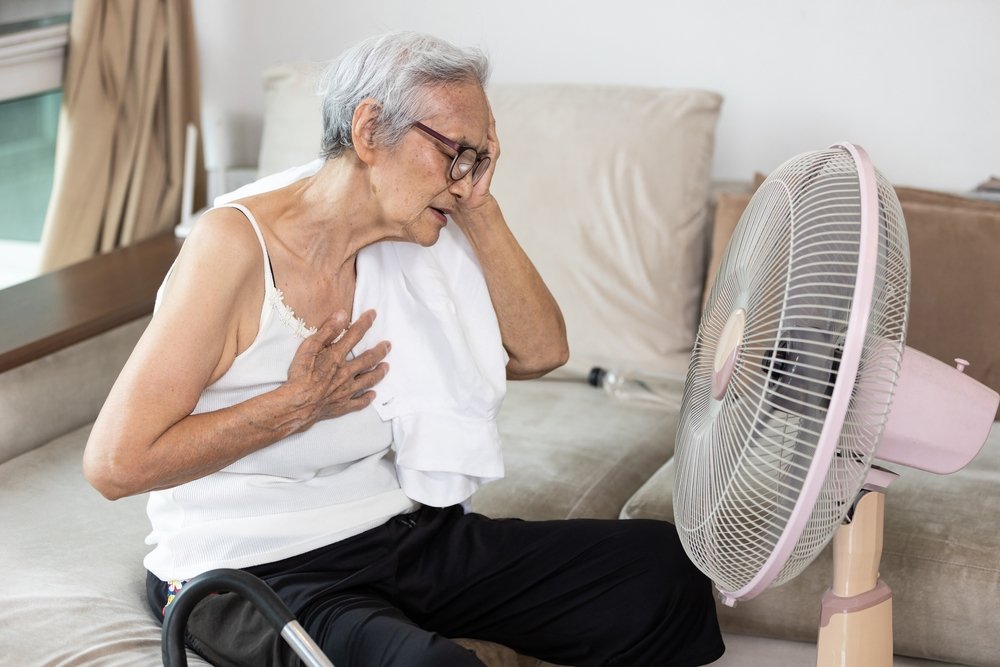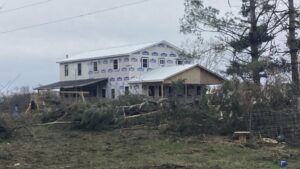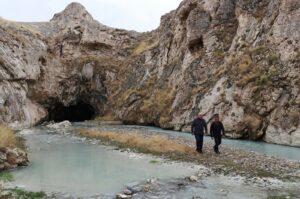Experts warn that complaints such as palpitations, chest pain and shortness of breath observed in hot weather can indicate both heart disease and panic attacks, advising caution.
Professor Telat Keleş, an instructor at the Cardiology Clinic of Ankara Bilkent City Hospital, stated in an interview with Anadolu Agency (AA) that rising temperatures during the summer can lead to serious health problems in heart patients and may trigger heart attacks in individuals with conditions such as heart failure, hypertension and coronary artery disease.
Keleş explained that the body develops various physiological mechanisms to maintain temperature balance in hot weather, during which blood vessels dilate and sweating increases. He noted: “In heart failure patients using diuretics, fluid loss can impair kidney function and worsen heart failure. Hypertension patients may lose control of their blood pressure. Hot weather can trigger heart attacks in patients with coronary artery disease.”
Keleş said studies have shown that excessive heat increases mortality in heart disease patients and the body’s mechanisms for adapting to heat can trigger heart attacks.
He emphasized that heart patients should avoid going outside during the sun’s peak hours. “For those who have had a heart attack or have coronary artery disease with stents, my recommendation is to avoid sun exposure during these hot days. I suggest avoiding certain hours for going out. If they want to exercise or work, they can prefer the hours before sunrise or after sunset,” he said.
Keleş also highlighted that hot weather affects not only physical health but psychological health as well and urged caution regarding symptoms that are often confused with panic attacks.
He stated: “Panic attacks can start suddenly with complaints like shortness of breath, palpitations and chest pain. These symptoms can also appear in a heart patient and may be a warning sign of a heart attack. Generally, we differentiate between individuals by considering whether they have a history of heart disease. If a person has a prior heart condition and experiences these symptoms, they should seek immediate evaluation. Missing a heart attack can have very serious consequences. To avoid missing a heart attack, if chest pain, shortness of breath, or palpitations begin and do not improve immediately, especially if there is a history of heart disease, I recommend the person seek medical attention.”
Professor Seda Kiraz from Bilkent City Hospital Psychiatry Clinic said panic attacks are sudden, intense episodes of fear and physical symptoms that can seriously impact daily life.
Kiraz drew attention to the fact that panic attacks are often confused with heart attacks and said: “Not everyone who experiences a panic attack necessarily has a psychiatric disorder. The lifetime prevalence of panic attacks in the general population is about 10%. This means one in 10 people experience a panic attack at least once in their lives. If these episodes occur frequently, significantly impact the person’s life, work, or quality of life, or if the person lives in fear and anxiety of having another attack even when not currently experiencing one, then professional support is needed.”
Kiraz emphasized that symptoms like palpitations, chest pain and shortness of breath are also seen in heart attacks and said: “In panic attacks, intense fear and anxiety are more prominent. Symptoms usually resolve spontaneously within 15 to 20 minutes. Panic attacks can be recurrent. If the person has had a previous panic attack, they can recognize the condition. This clinical history and some physical signs help us distinguish panic attacks from heart attacks.”
She added that studies show hot weather increases panic attacks and anxiety. “Hot weather can trigger symptoms like palpitations, distress, tightness, or insomnia, which can in turn trigger panic attacks. This situation can create an alarm in the brain as if a panic attack is coming.”
Kiraz offered the following advice for dealing with panic attacks: “The person should remind themselves that this is a temporary situation. A calm and safe environment should be prepared to help them stay comfortable. During periods without attacks, maintaining regular sleep, a balanced diet, physical activity and hobbies can help prevent future attacks. If symptoms persist, it is recommended to seek professional support. We also recommend avoiding going out during the hottest hours of the day, paying attention to sleep and water intake, spending more time on activities that make them feel good and maintaining good social relationships.”





















































Be First to Comment